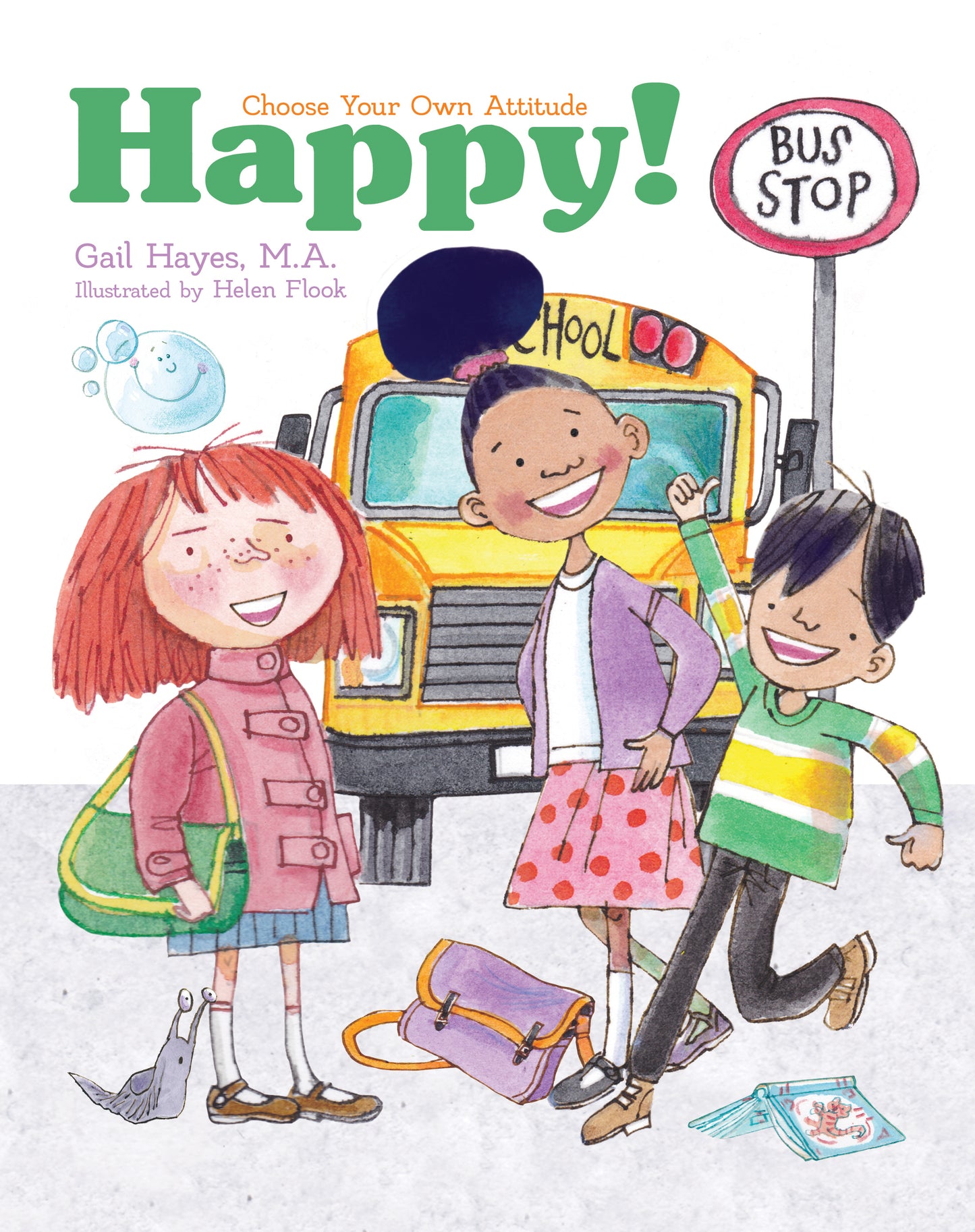Happiness is all around us there to be found and there to be constructed.
From techniques ranging from thought work to physical movement, author Gail Hayes, MA, helps readers learn and understand that we can choose happiness at almost all times in life. Learning which thoughts and actions lead to happier feelings helps us understand that we can choose our own attitude. Understanding that power to choose is a gift.
In Happy, these choices are contrasted between Bubble Thinking and Slug Thinking. Readers are encouraged to see that Bubble Thinking offers a self-driven approach to happier living.
Gail Hayes has a master’s degree in counseling psychology and a bachelor’s degree in psychology and child studies. She has been working with youth her whole career including over fifteen years in private practice. Choose Your Own Attitude is a series of books that she hopes will help address issues and feelings frequently encountered in her practice. Gail focuses primarily on a cognitive behavioral approach to therapy and many of the techniques implemented by Bubble are the same techniques her clients have found most useful over the years. She hopes to inspire Bubble Thinking as a self-driven approach to the challenges in children’s lives.
Helen Flook was born and currently lives in Wales. She studied art at Norwich School of Art and obtained a BA Hons in graphic design. After graduating, she spent ten enjoyable years in archaeology in the UK, France, and Germany and then two years managing an information center in North Wales for the Royal Society for the Protection of Birds. She then moved to Canada with her family and lived in Ontario for ten years building her career as an illustrator. She has since moved back to the UK and has had two of her own books published and has illustrated books by well known authors like Ian Rankin, Terry Deary and Rachel Billington. She takes pride in illustrating a number of books for Welsh speaking children about Welsh culture. One book ‘Welsh Cakes and Custard’ won the Tir na Nog prize for the best Welsh children’s book in 2014. Helen has been influenced by famous illustrators mainly working in pen and ink like E H Shepard, Quentin Blake, Ralph Steadman and Ronald Searle.





